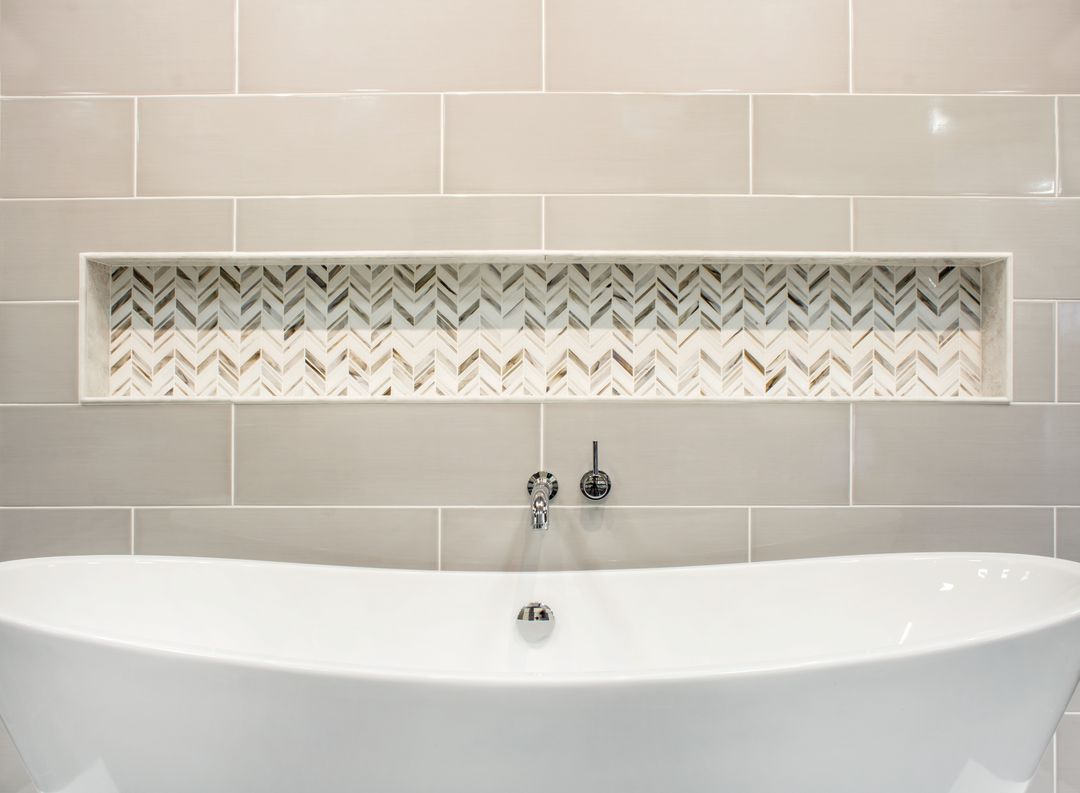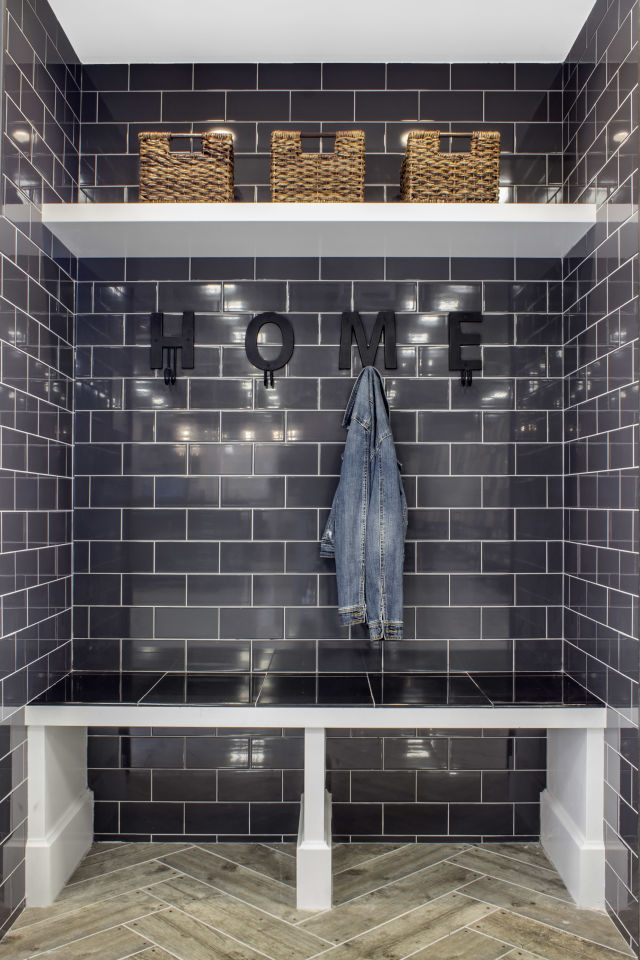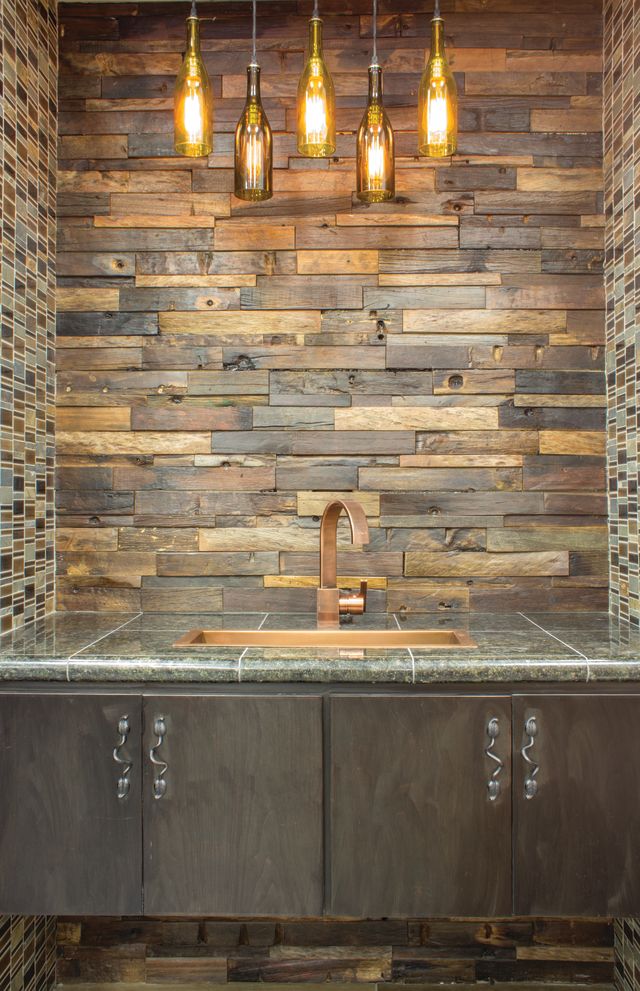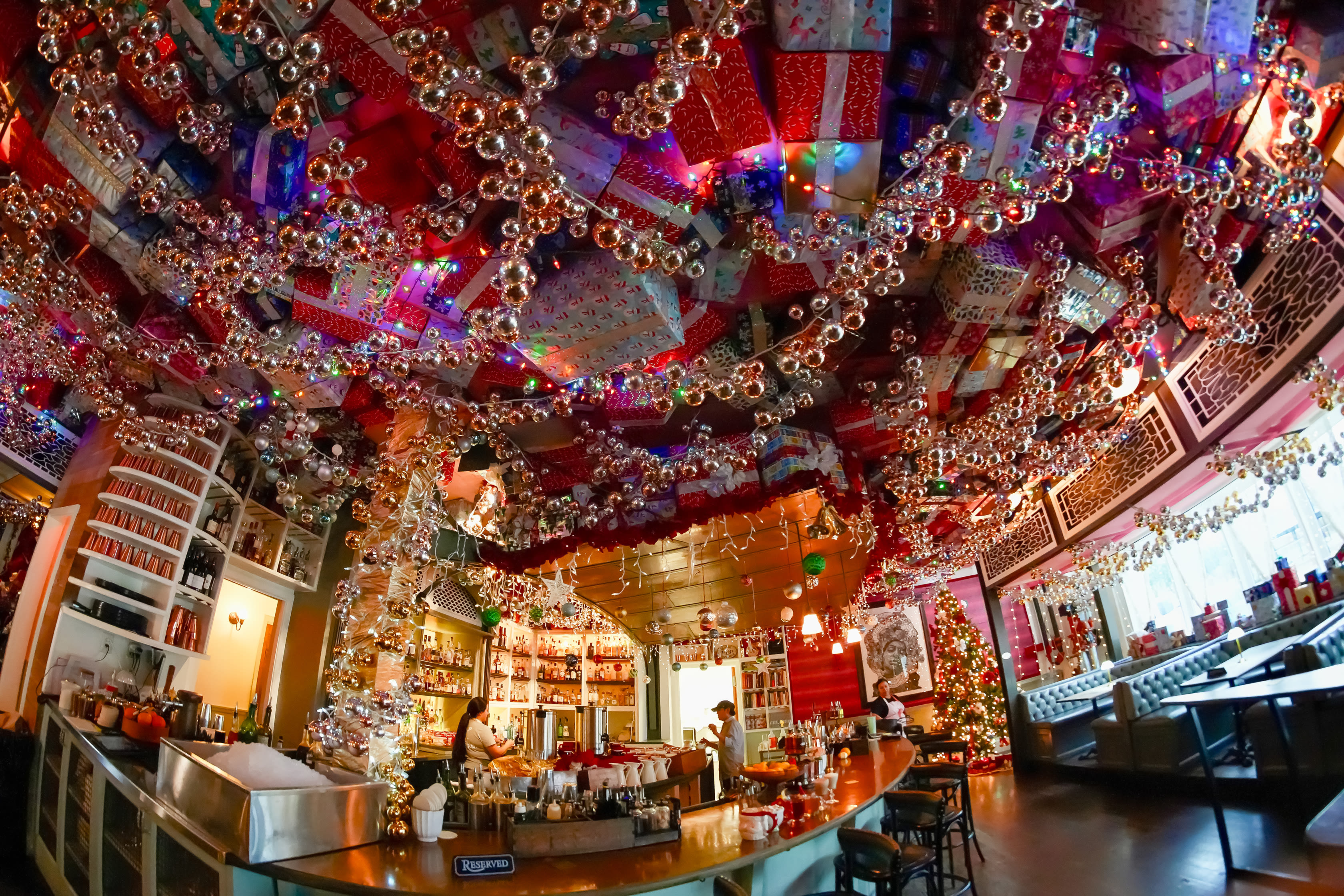With Blitz of Houston Stores, The Tile Shop is Poised to Help Post-Harvey Renovators

The Tile Shop, with its five new Houston locations, offers sustainable materials for post-Harvey renovations, like this recycled glass and ceramic wall tile.
Image: Courtesy of The Tile Shop
When The Tile Shop came to Houston, it did not mess around: The national retailer opened five nearby locations in as many months. The first, in Webster, opened about three weeks before Harvey; Sugar Land’s store was operative a mere 10 days before the floods came, forcing its doors closed just as they’d opened.
They remained shuttered for a week as the hurricane ravaged the Gulf Coast. Now, open once more, Houston’s locations are serving their clientele differently than the other 140 stores around the country, helping customers rebuild their lives–beginning with their homes.

No, that's not a wood floor–it's ceramic that mimics the trend but can outlive a flood.
Image: Courtesy of The Tile Shop
“In every walk of life, from multi-million dollar homes all the way down to smaller, lower economic housing of $100,000 or less–everyone was affected,” said Dwayne Rhodes, The Tile Shop’s regional manager for Texas. “What we saw is people who thought they would never flood [and now] never want to have it happen again.”
That means educating customers about flood-resistant materials and sustainable surfaces, Rhodes says. Porcelain, ceramic, and natural stone can all be cleaned and reused after a Harvey-like event. All are offered at The Tile Shop, along with “extremely great products” that look and mimic natural wood but can stand up to the elements.
“I’ve never experienced a flood before,” said Rhodes, who moved to Houston not long before the disaster. “I just bought a house three weeks before Harvey … and I watched [the water] get 10 feet from my doorstep. I had no idea.
“I watched what my neighbors had to go through,” he continued. “It was just horrible.”
Now, Rhodes guides many of them through the necessary renovations. But just as important as choosing a resilient material is ensuring proper installation.
“Just be very careful of who you’re hiring and ask the [proper] questions,” Rhodes said. “What are you going to use to install this? What kind of thinset are we using? Is this the proper thinset and is this going to be around in a year? … A tile’s not going to break down, but if it starts popping up in a year from now, it’s not the tile’s fault.”
Properly vetting material, installation products, and individual contractors now can help minimize risk—or replacement cost—later, he added.
And, of course, style—and longevity—must be considered.
“What can I keep, and what’s not going to go out of style in five or six years?” Rhodes explained. “The tile will never falter. If you put down a porcelain or a ceramic floor or natural stone, that’s not going to falter. That’s got a lifespan of over 50 years.”
Rhodes’ customers are increasingly interested in products that can span the entire house, from the bathroom to the laundry room, like patterned cement or wood-look tile. Patterns, geometric shapes, and three-dimensional looks are all trending for their ability to add movement to a wall or floor, Rhodes added.
Rhodes is also excited by new metallic-based tile in a range of finishes from high-gloss to matte.
“It really mimics what a distressed copper would look like,” he said.
Large-format tile—classified as anything over 15 inches on one side—is also in, lending itself to a decidedly “non-tile” look by minimizing undesirable grout lines with square lengths between two and seven feet.
“It’s kind of that commercial feel going residential,” Rhodes said.

A reclaimed wood bar uses porcelain mosaic–another sustainable material.
Image: Courtesy of The Tile Shop
Houston’s reputation as a diverse metropolis also shapes The Tile Shop’s offerings here, including stained concrete, European-inspired patterns, and water-jetted mosaics, for instance.
Once The Tile Shop became a publicly traded company a year ago, it became increasingly aggressive with its business model. Still, the blitz of new stores in Houston was atypical, Rhodes said.
“We opened up one right after the other, so we put a huge boost into the economic industry of Houston, spread out so we can be a little part of all the different communities,” he added.
Houston also offered The Tile Shop a chance to redefine itself, which it did by streamlining and brightening its new locations, sited in high-retail areas.
“Whereas [other] tile stores are usually in an industrial kind of area—probably not the sexiest place to visit,” Rhodes said. “But ours are … we tried something, and it worked. It worked well.”




